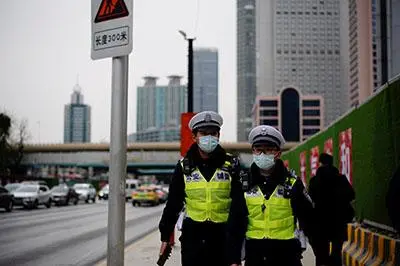PHOTO
(The author is a Reuters Breakingviews columnist. The opinions expressed are her own.)
HONG KONG - Hamsters have become the latest victims of China’s Covid-zero policy. Hong Kong is culling 2,000 of them after 11 tested positive, while Beijing curiously blames the mail for spreading the Omicron variant. Dogged devotion to an elimination strategy and the resulting disruptions are becoming farcical, and costly, as the rest of the world learns to live with the virus.
It has been hard to quibble with governments trying to keep citizens safe from a disease responsible for more than 5.5 million deaths worldwide in two years. Rising vaccination rates and the economic consequences of restrictions have prompted most policymakers to relax their approaches. Hong Kong, however, has closed kindergartens and gyms despite the government’s live tracker showing only one local case on Wednesday morning. Suspected sources of infection, ranging from frozen crocodile meat to Cathay Pacific air crew, are subject to intense scrutiny and censure. Close contacts face 21 days of isolation in an overburdened quarantine camp. Mainland China officials are sealing off cities to quash outbreaks ahead of the Beijing Olympics next month.
There are reasons for caution. In Hong Kong, only about 70% of the population has received two shots and the figure is as low as 20% for the elderly. And although China has administered nearly 3 billion doses, enough for 105% of the population to be double-jabbed, some studies cast doubt on the effectiveness of the locally developed vaccination.
As Omicron spreads, however, a hamster on a wheel provides an apt metaphor for the containment efforts. They’re out of step with a world slowly reopening and jeopardise Hong Kong’s future as Asia’s self-proclaimed “World City.” More than 40% of executives and a quarter of the companies surveyed by the local American Chamber of Commerce said they are more likely to leave the city because of draconian travel restrictions, according to results published on Wednesday. Border controls also have decimated tourism and retail, while crimped air cargo capacity threatens to drive up prices of food and medicine.
Beijing’s interest rate cut on Monday is one sign of the wider economic strain, and its Covid-19 approach is almost certainly a contributing factor. Until there is a shift, Greater China will be playing a lonely, and harmful, game of whack-a-hamster.
CONTEXT NEWS
- Hong Kong on Jan. 18 ordered a cull of 2,000 hamsters and warned pet owners not to kiss animals after a new cluster of Covid-19 cases was traced to a pet shop.
- The outbreak of Delta variant cases in humans linked to the shop worker prompted tests on hundreds of animals, with 11 hamsters testing positive.
- Hong Kong Health Secretary Sophia Chan stressed at a news conference that there was no evidence domestic animals can pass the disease to humans, but authorities were acting out of caution to ban imports and sales of pet rodents.
(The author is a Reuters Breakingviews columnist. The opinions expressed are her own.)
(Editing by Jeffrey Goldfarb and Thomas Shum) ((For previous columns by the author, Reuters customers can click on HAMLIN/ SIGN UP FOR BREAKINGVIEWS EMAIL ALERTS https://bit.ly/BVsubscribe | katrina.hamlin@thomsonreuters.com; Reuters Messaging: katrina.hamlin.thomsonreuters.com@reuters.net))





















